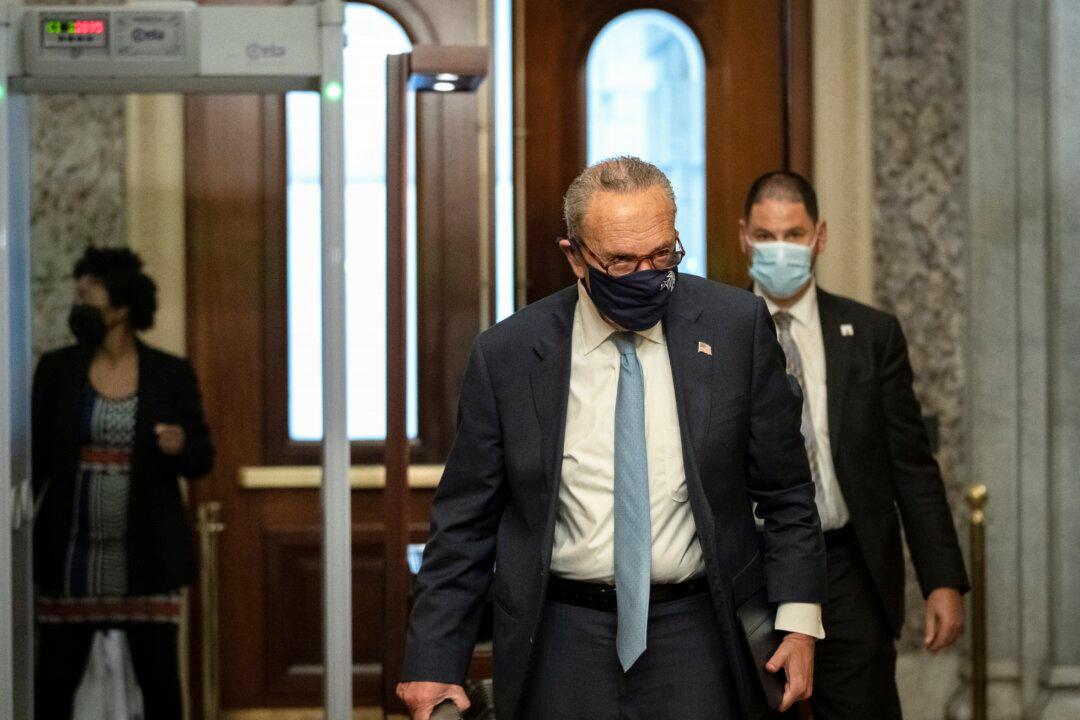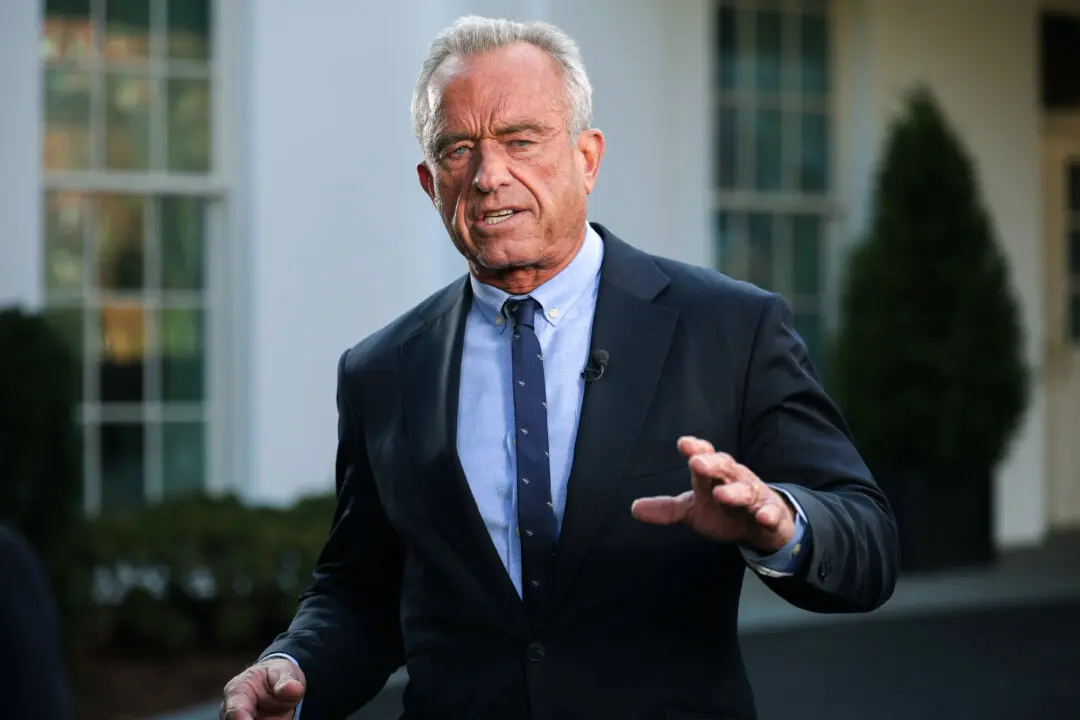The top Democrat and Republican in the U.S. Senate announced a deal on Oct. 7 that will raise the United States’ debt ceiling for a brief period.
Senate Majority Leader Chuck Schumer (D-N.Y.) and Senate Minority Leader Mitch McConnell (R-Ky.) hammered out the agreement after Democrats refused to fold the debt limit matter into a mammoth budget package they’re hoping to ram through Congress with no Republican votes.






